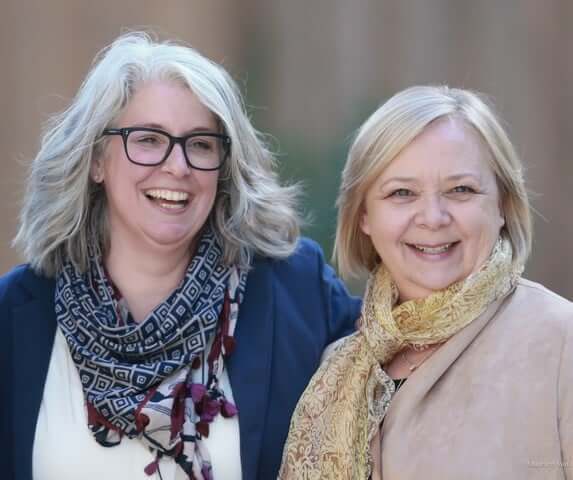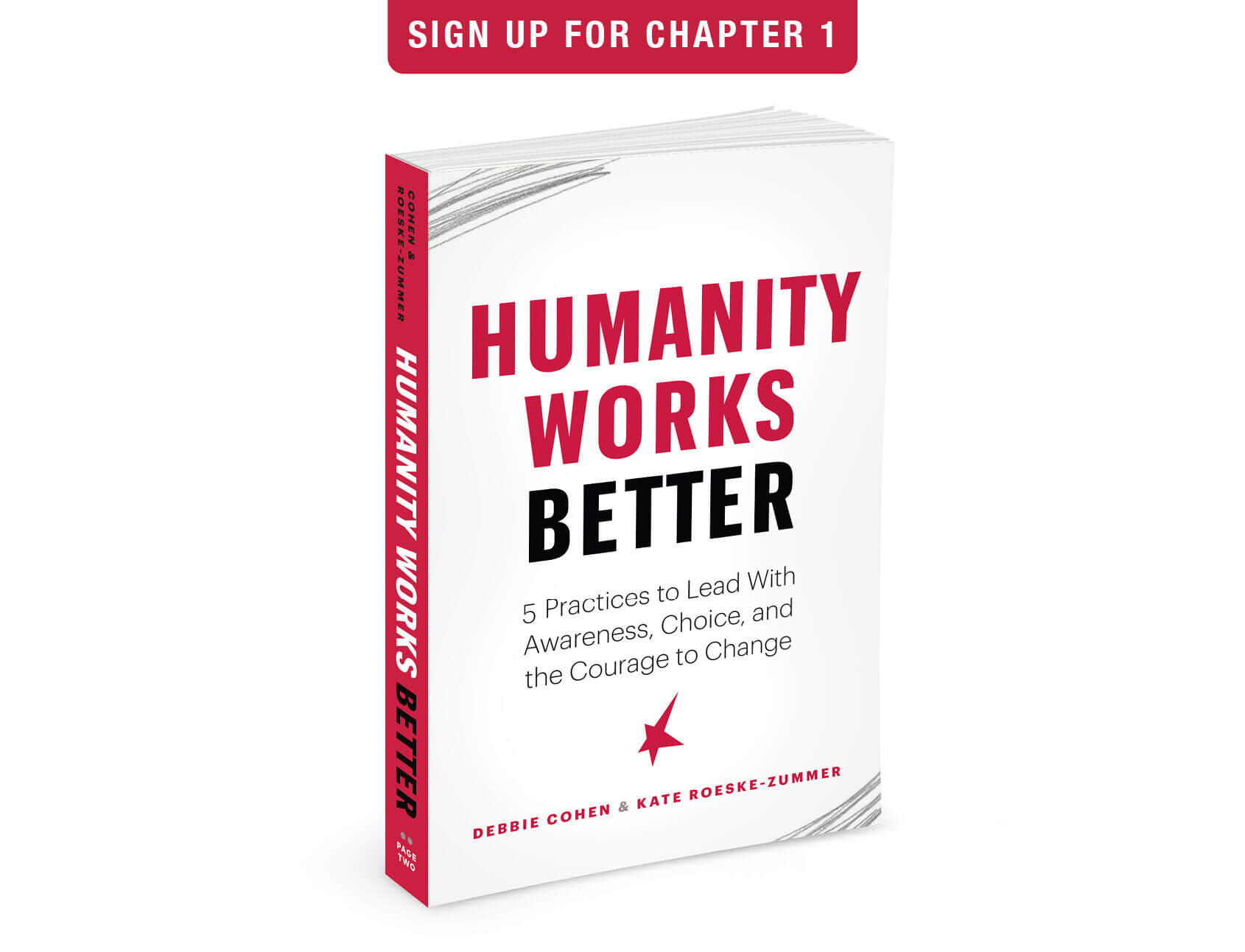
Infatuated with Wants? Discern Your Needs provides practical tips to help us all navigate relationships at home and at work during this unprecedented time in history.
Admittedly, Debbie has been a little behind reality when it comes to what’s happening in stores. Until last Thursday, it had been almost three months since she had stepped into one. She had been out of the country for a while, then self-isolated at her home in San Francisco. But with home deliveries being impossible due to shortages in inventory and unpredictable delivery times, she ventured into Target.
What she found were not the usual 20 types of toilet paper available. There was one. And you could only have one package, so more people could have some too. The store had items, but fewer options. In some cases, there were no items, so you had to get creative. The takeaway from that outing – this is a time for discernment. A time to become aware of what we need vs. what we want. So first, what’s the difference between the two?
- A need is something you have to have, something you can’t do without. Like food.
- A want is something you would like to have. Like specific types of food, or the brands that we prefer.
Right now many of us work from home, whether we want to or not, in what some refer to as “make shift quarantine bunkers.” As States rapidly transitioned to shelter-in-place, companies scrambled to make sense of how to successfully conduct business and rushed to get people set-up to work from home. The thing is, smart phones, laptop computers and “the cloud” made where and when we worked ubiquitous long ago. But in a heartbeat, any remaining division between home and work was breached by our employer, our government, and our need to make a living.
Work now lives inside many of our homes, whether we want it there or not. Work is now a housemate to our kids, our partners, our parents and our pets. Who, by the way, are also there 24/7 out of need, not want. We are grappling with the strain of changing how we work and live. It feels chaotic – everywhere.
And what can get lost in the chaos is you. So let’s pause for a minute. Breathe.
With the world of work changing so rapidly around us, we started thinking about relationship need vs. want, particularly work relationships. What do we need from one another to be our best in times that are this unfamiliar, this uncertain? If we can show up as good humans for our co-workers now, imagine what is possible for the future of work and how we will work together when we are on the other side of this crisis. Bonus points, the ideas presented below all work for personal relationships too!
We offer one of our favorite skills: Shared Agreements. A Shared Agreement is just like it sounds – an agreement you make with another person or a group of people, together. They explicitly define what you need from one another to accomplish what you are trying to get done. Shared Agreements are the ‘how you will be with one another,’ not the ‘what you will do together.’
This idea of how you will be with one another is something we often step over in relationships. We focus on the doing rather than the being. It feels somehow safer, until it’s not. Without making the implicit explicit, you are priming for a big mess. The thing that gets in the way of productivity, of agility and satisfaction in relationships, is that we think other people know what we need. But they don’t. Most of the time we are unaware of our own ability to claim what we need and why it is important to us.
Photo by John Schaidler on Unsplash
Years ago, we were in a workshop where the facilitator asked everyone who had a birthday in the last 12-months to raise their hand. Of course, all hands went up. The facilitator then instructed the group to keep their hands up if they received a gift for their birthday. Some number of hands went down, others stayed up…maybe 50/50. The next instruction was to keep your hand raised if the gift was something you wanted. Many, many more hands went down. And finally, the facilitator instructed to keep their hand raised if they had made an explicit request for the gift you received. One hand remained up. The point? We are much more likely to get what we want when we ask for it. A simple, yet impactful, lesson.
We know…you don’t like these conversations. They feel soft, mushy. They involve messy bits like feelings and expressing your needs. A narrative erupts that you become vulnerable in these conversations, when the reality is there is a great deal of strength and bravery required to put your needs out there. And when you can put yourself out there, the underlying shift in the narrative is that you get to believe that you are worthy of having others care for you and about you. It’s terrifying, but it works.
When we facilitate, each session begins with Shared Agreements. Frequent requests among group members are things like:
- Play full out; don’t hold anything back
- Have fun; experiment with the uncomfortable edges of what you don’t know
- Judgement free zone; there is no such thing as a dumb question
- Be curious; ask questions to deepen understanding of others and ideas
- Be present for each other; screen-free zones, no cross-talking, listen to one another
At a time when a sense of psychological or physical safety is missing for many, Shared Agreements can help create safety in the way we are together. This is actually a need, not a want.
Let’s get started:
Step One: Create Clarity for yourself and those around you.
- What outcomes do you all really care about? How are those prioritized?
- What conditions need to be in place for you to work (live) together effectively?
- What kind of flexibility do you each need right now? What does that look like?
Step Two. Establish Ground Rules, together.
- What conditions need to be present for people to be their best? Some may need a few minutes of personal connection before jumping into work, while others may need “quiet hours” when they know there will be no virtual meetings.
- What are the deal-breakers? These are activities or requests are simply non-negotiables. For example: I won’t work on weekends or each person is responsible for maintaining shared spaces.
- When you get full or past-full, how do you ask for help? We can all be overwhelmed in the best of times, and when times are challenging, it’s good to know what your endurance limits are and what you need from one another when you hit capacity.
- How will you address issues that come up? (They will!) Structures are good for this; ideas include a check-in on shared agreements at the start of each weekly team meeting, or during 1:1’s. Defining a specific time to address what is working, and what is not, makes bringing up issues safer for everyone.
Step Three. Exercise Grace, with one another. The best skill for this is to listen deeply. Really listen to what is going on for you and for others. Avoid trying to be the fixer; just listen and reflect back what you hear. Validate their feelings. Ask yourself and others:
- How are you doing? What is challenging?
- What is not being said?
- What would serve you best right now?
Step Four. Practice Agility. One thing about shared agreements – they are fluid. As things change, so might your agreements. A pro tip is to set a regular time to revisit them. This lets anything that might not be working well get addressed before it becomes “a thing” and lets everyone modify terms that may need to change. Set a time, like at the start of each week to revisit these agreements and modify as needed.
As we continue to work and live in our teeny, tiny worlds it is more important than ever to discern our needs from our wants, and to communicate our needs to each other. Create shared agreements to help each person fully contribute and be the best version of who they are. Grow your capability to check in with yourself and those around you. These are great traits of good humans!
Acknowledgements: Our gratitude to Anika Briner and Michelle Zajac for their contributions to this article.

About the Authors, HumanityWorks Team:
Kate Roeske-Zummer, Founder and Chief Inspiration Officer
Bringing more humanity to the workplace.
Debbie Cohen, Chief Instigation Officer
Causing transformation of people and systems so both can reach their fullest potential.


